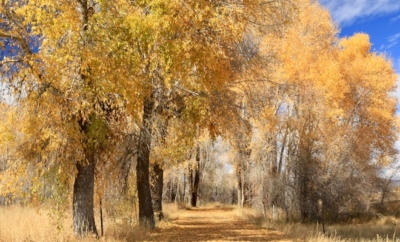
Anxiety
Life Transitions
When a dog is introduced to unfamiliar surroundings, like a neighbor’s house, it feels compelled to explore, to do a quick patrol of the perimeter, to get familiar with its surroundings. It will feel anxious if for some reason it’s kept from completing the task. In fact it’s the anxiety cued off by the unknown, coupled with natural curiosity, that compels it to set out on that mission of discovery.
We can think of life transitions of all kinds in the same way, as us getting introduced, often without our say so, to new surroundings with unknown dimensions. But we usually can’t just quickly explore them like the dog in the house. We’re put into a state of flux, we remain uncertain of exactly how our world is going to look once the dust settles, and this uncertainty produces painful existential anxiety. We want to put an end to that anxiety, which means that consciously we want to know right now how things are going to turn out.
But life transitions unfold in their own time and many variables exist outside of our locus of control, which means if we want to weather the storm better we must learn to be more skillful at handling our existential anxiety. We must get more comfortable with discomfort, we must learn to sit with the uncertainty and doubt inherent in the changing situation. When we can do that we put ourselves in a better position to discover what if anything we need to do in order to get the best outcome for ourselves.
One of the healthiest and most effective ways to find relief from the anxiety is to come back to the present moment by coming home to our breathing. This is the anchor that we can throw over the side of our psychic ships when we’re struggling with that sense of being adrift in the world. Whatever doubt exists out there, there’s no doubt whatsoever that in this moment we’re alive and breathing and sentient. Doubt and certainty are incompatible behaviors. If we’re feeling one we can’t be feeling the other. So when we come fully to the present moment we’re certain of where and when we are and this grounds us and shields us from the anxiety.
Life transitions of all kinds are unavoidable but we can learn to handle them much better. By inhabiting a state of mindfulness more often and growing more comfortable with the discomfort of anxiety by tracing it to its source we are able to explore more possibilities inherent in the changing set of circumstances.




